"You won't get on today's boat, forget it. The boat is full. And we have twelve persons on the waiting list already."
My friend and I are in Cape Verde archipelago. Just yesterday we flew in the capital Praia, on Santiago Island. We planned to spend the next few days in Maio, a neighboring, little-known, unfrequented island. But we did not expect the ferry to tiny Maio to be full. The next boat depart is in four days.
It is 4:00 p.m. We have no accommodation arranged and no plan. What to do? We examine the options. If we are to remain on the island of Santiago, I don't want to stay in town. I have appetite to explore the mountain. But we know nothing about that area.
I consult a French family who, like us, did not get on the boat. They went to the mountain already and warn us, that accommodation there was pricey. I find it hard to believe. I sit on my backpack for the lack of a better place, open laptop and call two places I find on Google Maps. Both owners speak fluent English. And indeed: one ask 6000 escudos (Eur 60) for a basic room, the other asks the same price for space in a tent. I am not going to pay that.
The hectic ferry terminal with no place to sit is not an inviting place to do more research. We decide it is the "escape the system" moment.
Escaping the system: the difficult part
The Art of Escaping the System, which I perfected over numerous expeditions, is about getting out of the conventional tourism network. If you are new to a country, it is considerably more difficult done than said, mostly for psychological reasons. Why so? Let me just continue.
So it’s 4:00 p.m., our plans just collapsed, and we don’t know where to stay. The hotels in the mountain are overpriced. The conventional logic tells us to go back to our hotel in Palmarejo, check a restaurant tonight, tomorrow wake up in a comfy queen-size bed, grab a coffee and go to the beach and in the afternoon, perhaps, to a museum.
Instead… how about finding a bus to one of the villages tucked in the mountain, and once there, find a family who has a spare room?
But which village? We have no idea. We inspect the map and pick a village almost at random. It is called São Jorge. The map shows it is in a deep valley near high mountain, so it could be nice. Or not. This is all we know.
We are hesitant.
The right side of the brain tells us the obvious: you are being silly. You’ve just decided to trade your air-conditioned room for a random spot on the map, with zero TripAdvisor recommendations. Possibly the most boring, if not most dangerous, place on the island.
But we are stubborn.
Yet, the bus station is far from our ferry terminal. I call Vito, a taxi man who drove us yesterday. He quickly grasps our situation and takes the lead. No more buses today to São Jorge, he says. Vito offers to get us a ride directly to the village. His offer seems a bit overpriced, but the night is coming. We agree, and soon we jump in his taxi for a 40-min journey. So the first step has been made! But we’re still far from solution.
On the way, Vito tells me we are at risk of not finding anything. People in villages do not rent, he says. The few rooms that exist, will be booked already, as the area is popular. Vito offers to drive us to his friend running pensão (pension) in another village. I call the number and learn the price is, again, 6000. It seems we are not getting below that.
It is getting a bit nervous. We have arrived. It is an unwelcoming bus stop, neighboring a few ugly houses and no people at sight. Vito insists we could accept his friend’s offer now, otherwise he needs to go back to Praia and leave us stranded here, in middle of nowhere where no people rent rooms. Vito is probably right. It will be dark soon. Do not leave the car, says the logical part of the brain.
At this point my brain spins in high gear, using all possible strategies to tell me how dangerous, irresponsible and silly of me it is to reject Vito’s friend hotel with a swimming pool. For the sake of saving stupid 60 Euro!
Hell yes, but ... what's the point of travel?
We take a deep breath. What is the worst thing that can happen? We are not pressed, have no work deadlines for tomorrow and no jewelry in backpacks. As worst scenario ever, we'd sleep on a wooden bench at some village children playground. That's not the end of the world. We politely tell Vito to just let us go, which he does.
The taxi leaves, and with it disappears the feeling of panic, stress, and belonging to civilization. There are no cars and no people. The sun is setting at the very moment behind an enormous, mysterious mountain. We hear the humming, calming sound of cicadas. My mind suddenly calms down and stops yelling at me. Other sensations appear: liberation, freedom, excitement and joy. We made it. We escaped the system. Fighting the civilization daemons implanted in our heads - that was the difficult part. What remains is the easy part: to find a place to sleep.
The easy part
We look around. With astonishment and embarrassment, we notice the house opposing the bus stop happens to be a pensão, somehow not present on Google Maps nor Booking.com. In stress, we did not notice actually standing right in front of a rural hotel. We enter and inquire. Of course we are welcome, as there are no guests today. All five spacious rooms are empty. The hotel operates at one-third of Vito's price: 2000 escudos. There is even a small swimming pool. It is tempting, but ... this would make us hop back in the system.
It is 6 p.m. Instead of continuing to panic that it would soon get dark, we make an observation that we still have two hours of daylight. We decline hotel’s offer and walk towards the center of our mystery village, to connect with people. In the worst case, we will walk back here.
The center is 3 km away, deep in a side valley. As we start walking, the valley opens and it gets very pretty. We enter into palm groves, fantastic vegetation and rocks of magical shapes. The village is long and sparsely populated. During half an hour, we pass only four houses.
As we approach the center, more houses appear. Women resting on the porches, men working in gardens, they all greet us and eagerly engange in conversation. Using some combination of sign and verbal language that may hopefully resemble Creole Portuguese, we inquire for families who may have a spare room for a few nights.
They say to ask in the village hotel. Apparently the village owns a communal hotel which, again, was not visible in any online booking services. We walk there. The hotel appears to be full because of a school trip from Praia, but an incidental passer-by listens and gestures towards us to follows him. His name is Antonio. He walks us to a house of his sister Nélita, just five minutes away.
We are greeted by two ladies watering the garden and a group of curious kids. Nélita laughs: she has a room but thinks we won't like it. She apologizes that the room has no bathroom, and the bathroom downstairs has no running water. We tell Nélita the room is perfect. We quickly come up to a fair deal. We will stay here.
Many jokes are cracked, and Nélita's daughters instantly want to play basketball with us.
As we continue to talk, a public minibus passes us slowly on the cobbled road. The driver, arriving directly from Praia, stops to chat and tells that the ticket costs 180. We laugh - I had suspected this. We overpaid ten times for the taxi, while the buses were there. But hell, this was the price of escaping the system. The operation was successful.
The reward: In Nélita's house
As we walk in with our backpacks, we are greeted by six women aged 4 to 60: Nélita, Neria, Nelida, Luana, Ania, and Vania. The husbands and sons would come later, now at work. Except Nélita's three sons, who migrated to Portugal. Their pictures are on display in the living room. One follows footballer's career, two work in construction. While we move to the room, the children walk in with us and don't leave us ever since, asking curious questions, then guiding us around the village and to the basketball field.
We happened to have an unopened nutella jar in the backpack. This gift was a hit.
The house is typical Cape Verde rural house. The distinctive feature of those homes are concrete walls and floors without finishing. Here is the kitchen.
Garden has plants which Nélita sells in Praia.
Our room on the roof is a true penthouse!
We then get to play basketball.
We refresh French with Nelida.
Children lead us to the village attraction: a decaying botanical garden.
After dinner, we spark a spontaneous dance party. Everybody is in.
Breakfast is referred to as "coffee". As coffee, we get: coffee, powdered milk, bread, bananas and one papaya. Cape Verde diet, compared even to continental Africa, is extremely basic. One shocking fact about Cape Verde is that people do not eat fruits and vegetables. We are fortunate to get fruits.
After coffee, we get out and see the splendor in daylight. And we cannot believe the eyes. The countryside surrounding the house is like magical fairytale. We instantly decide to stay here for several days. Escaping the system was worth this view, and these people.
Post Scriptum
I have been practicing the Art of Escaping the System during numerous expeditions. I observe this usually confronting two obstacles.
The first obstacle is your brain program.
The other is that during your first steps in a new country, you have likely made acquaintances with people who are part of the hospitality network. This network is highly self-protective. Asking for advice inevitably results in moving within this network and being indefinitely passed between people who consider you a walking wallet. Escaping this system often means deliberately acting against all advices received. This is what makes it difficult.
I have also written more Cape Verde stories.


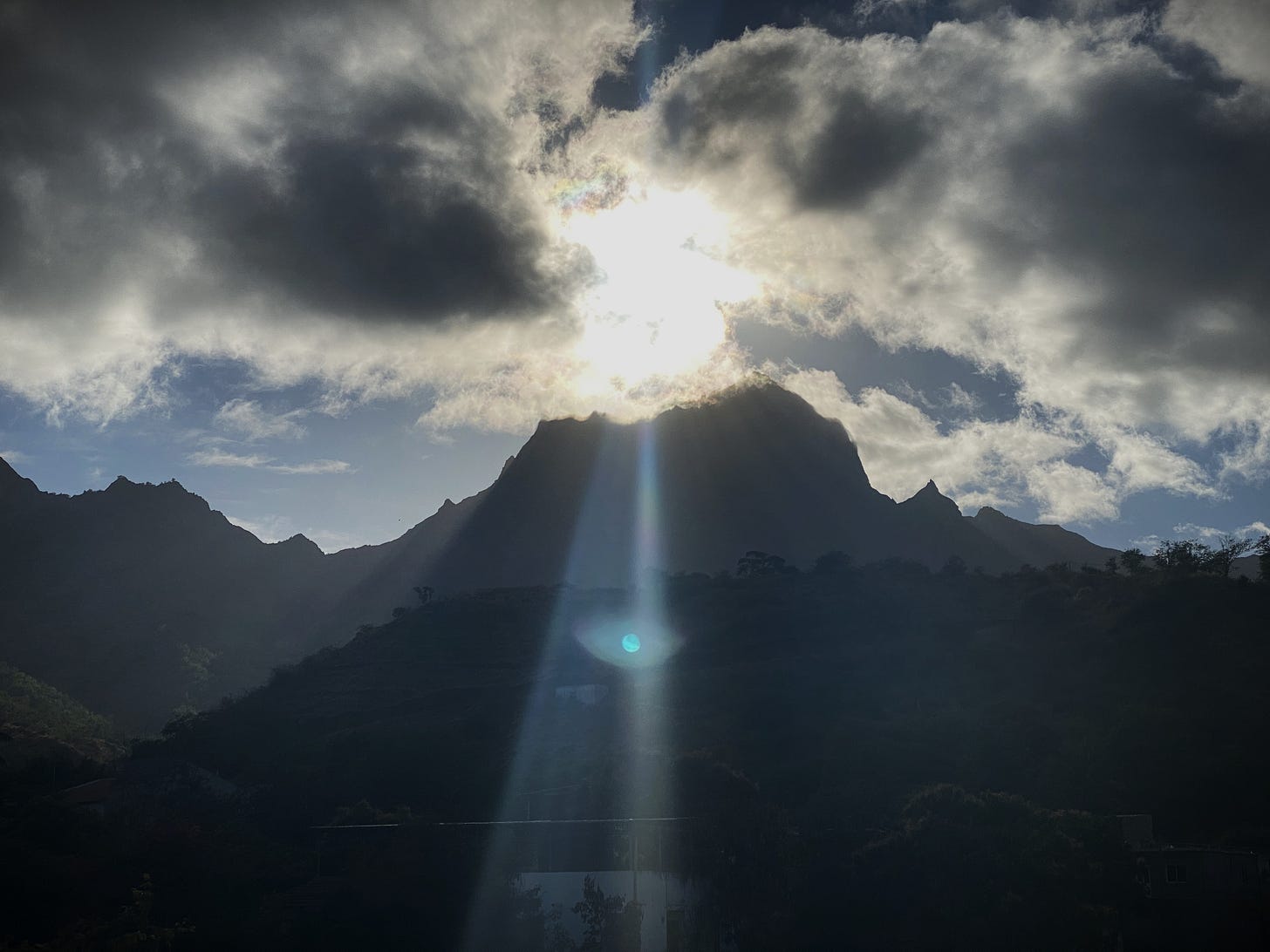
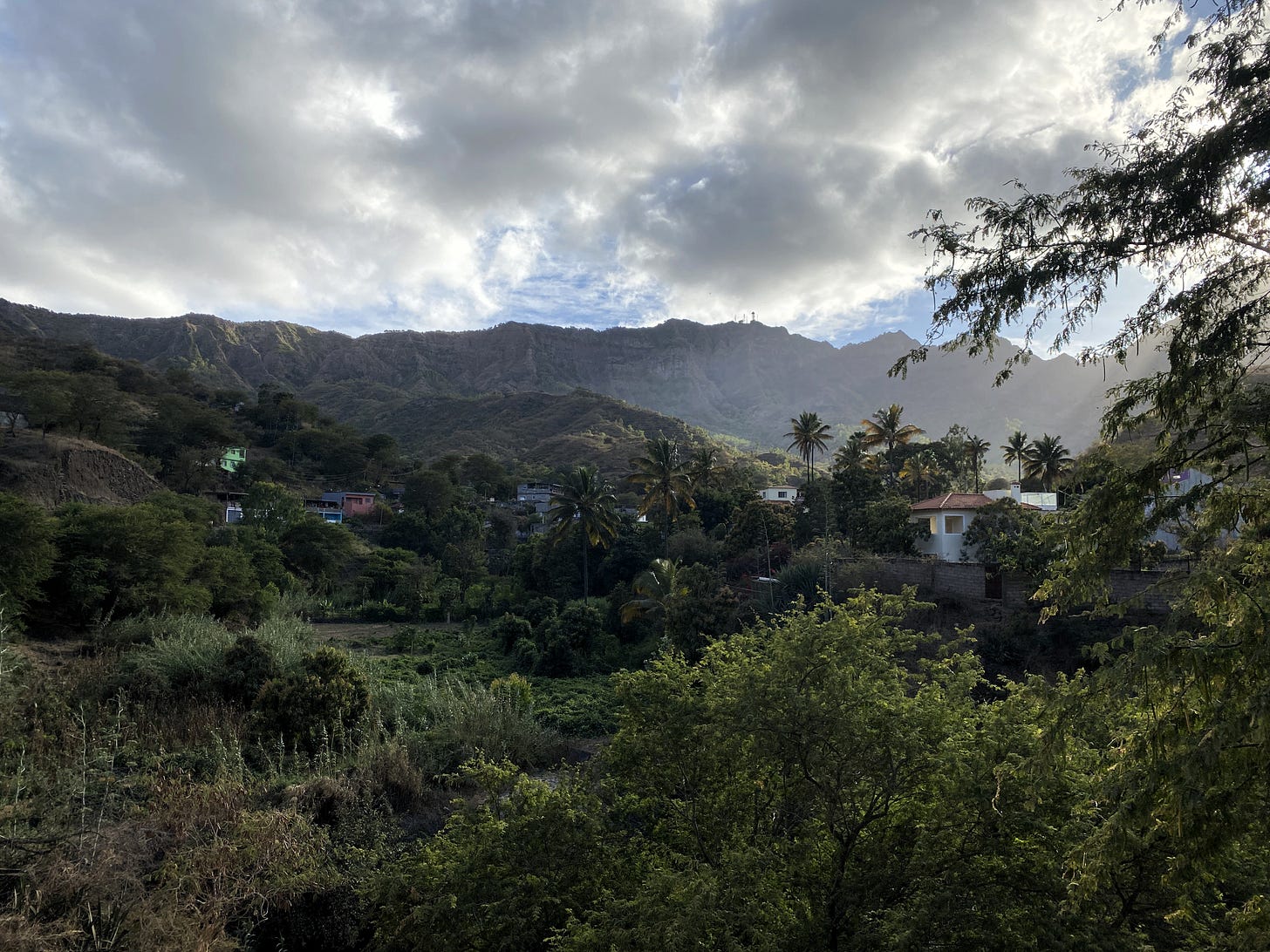
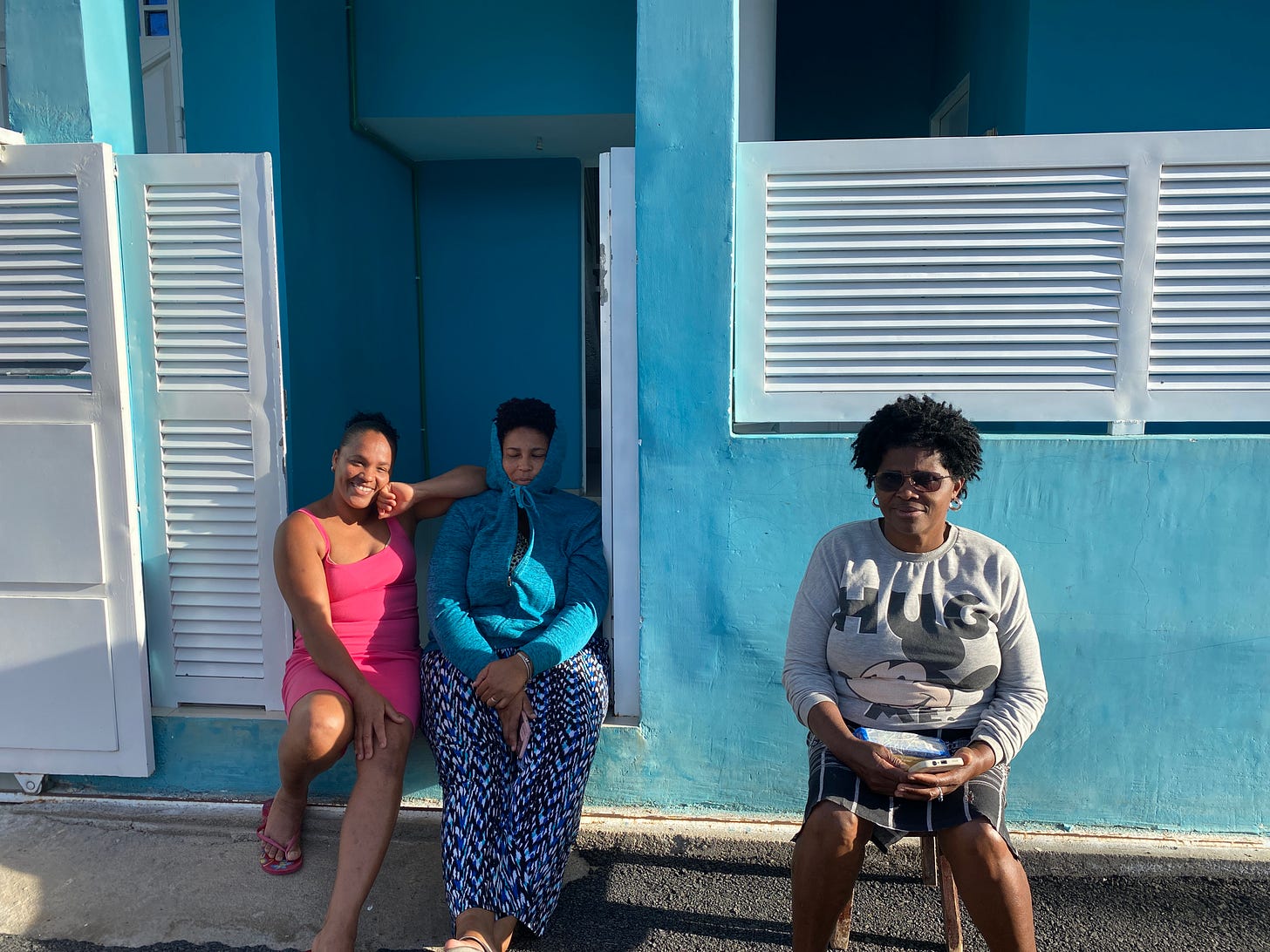
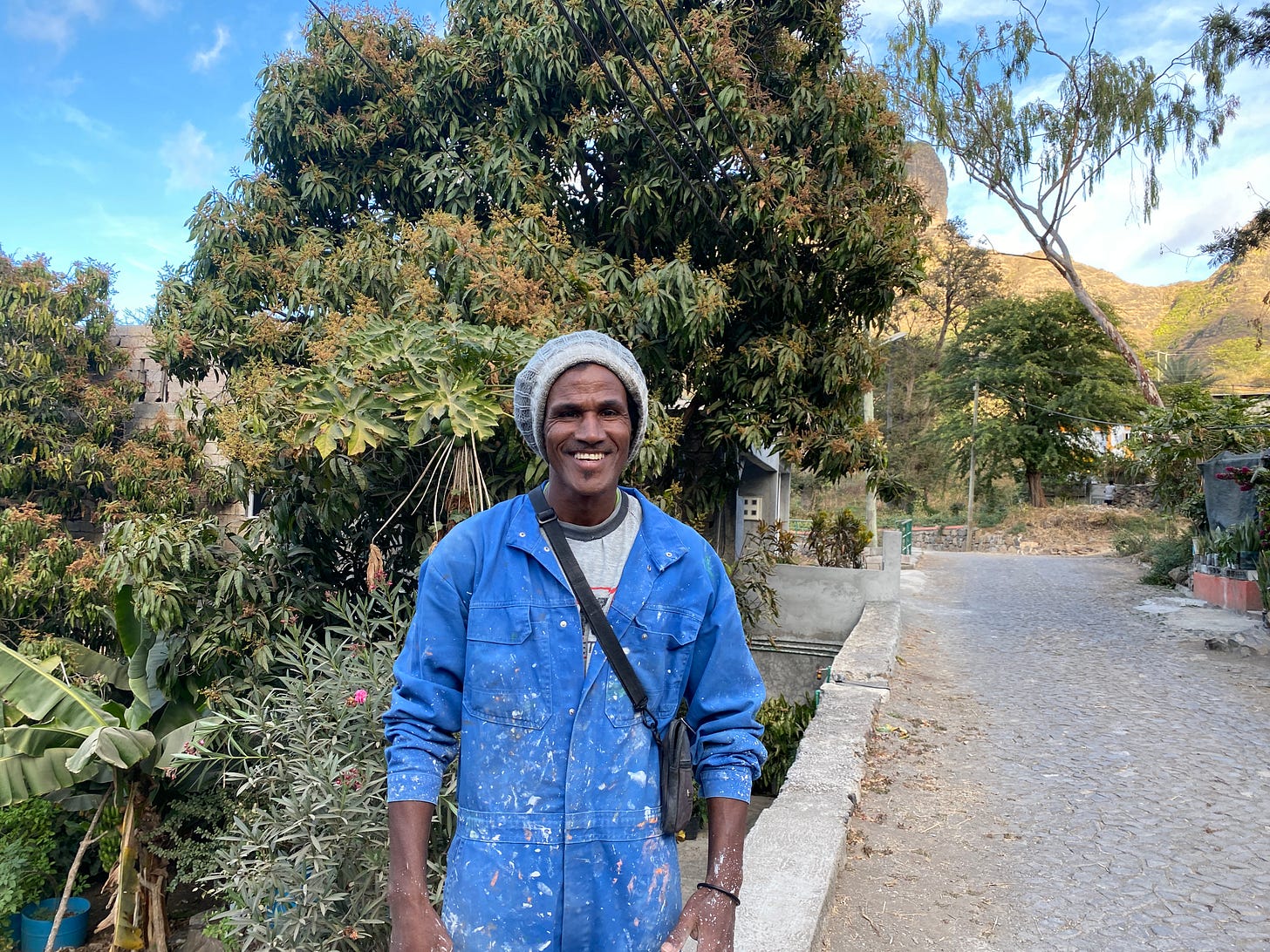
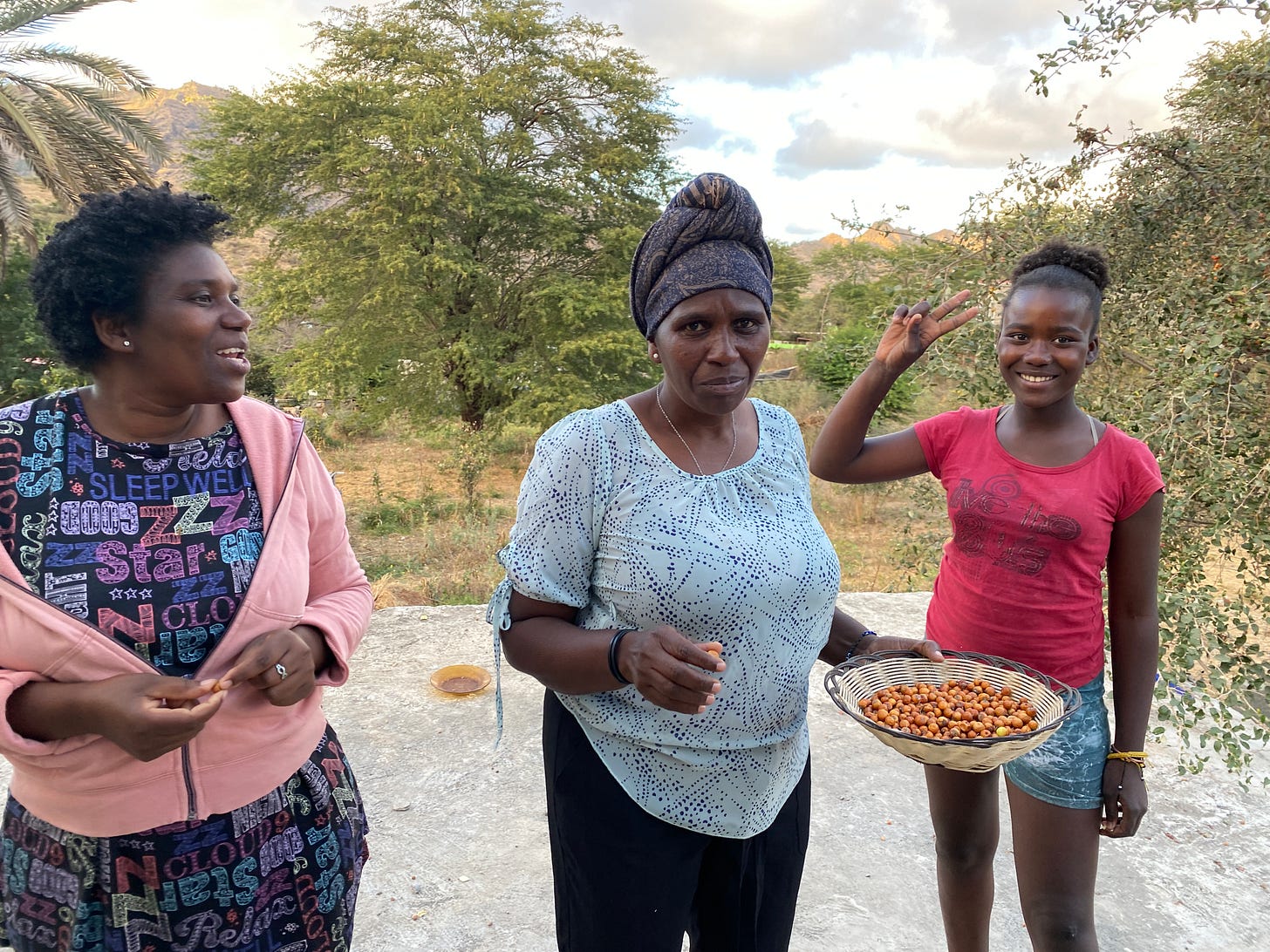
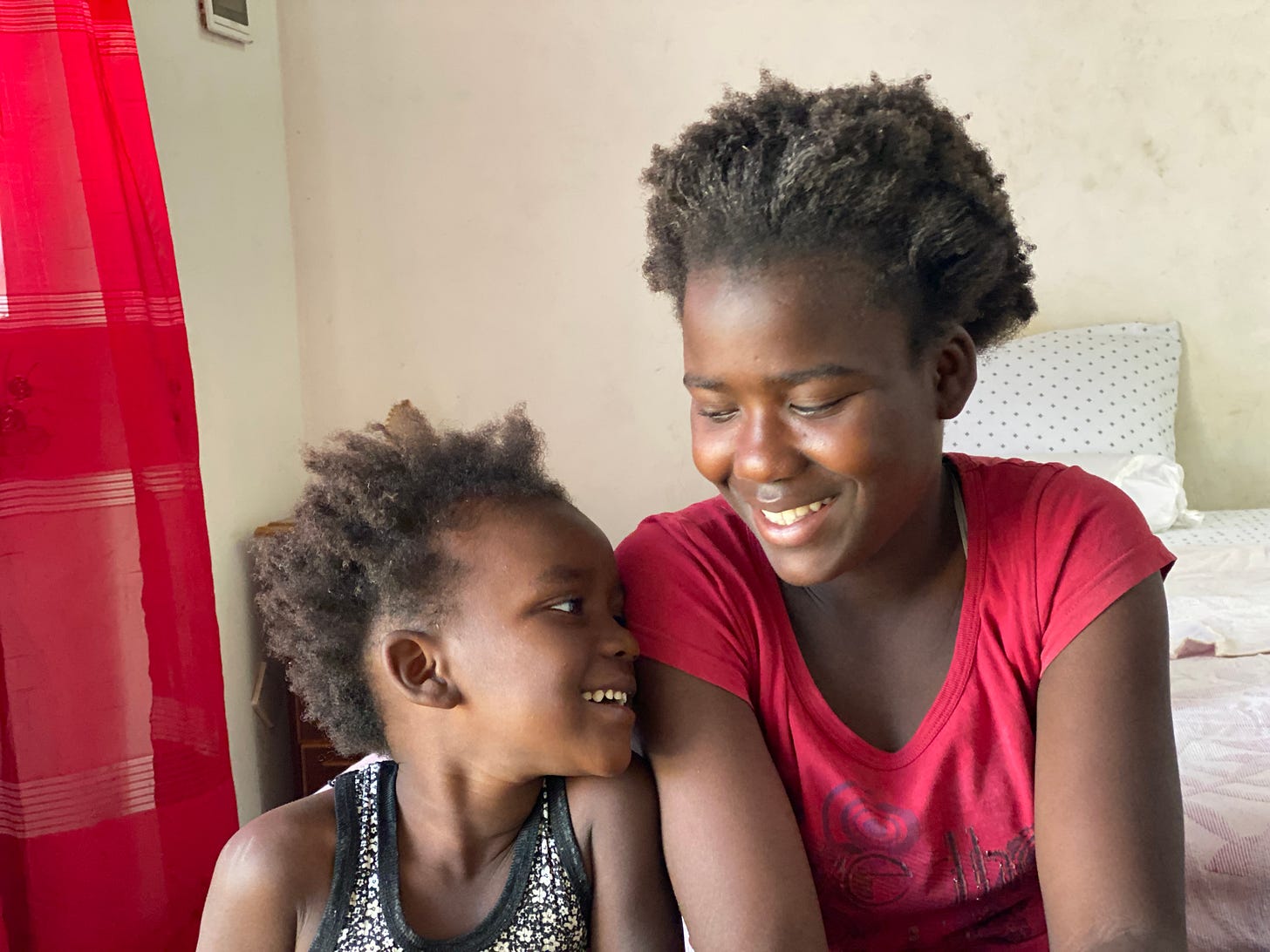
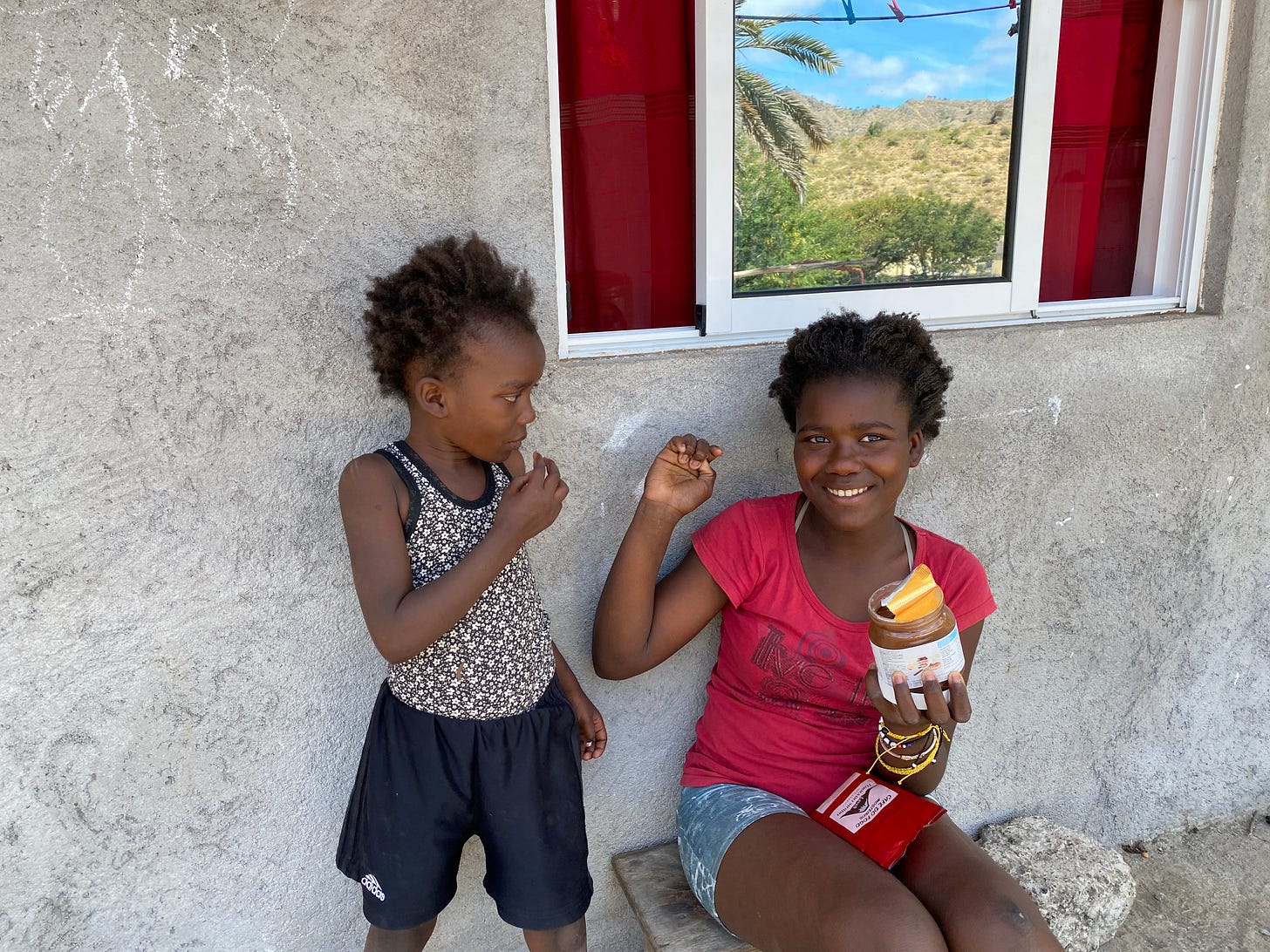
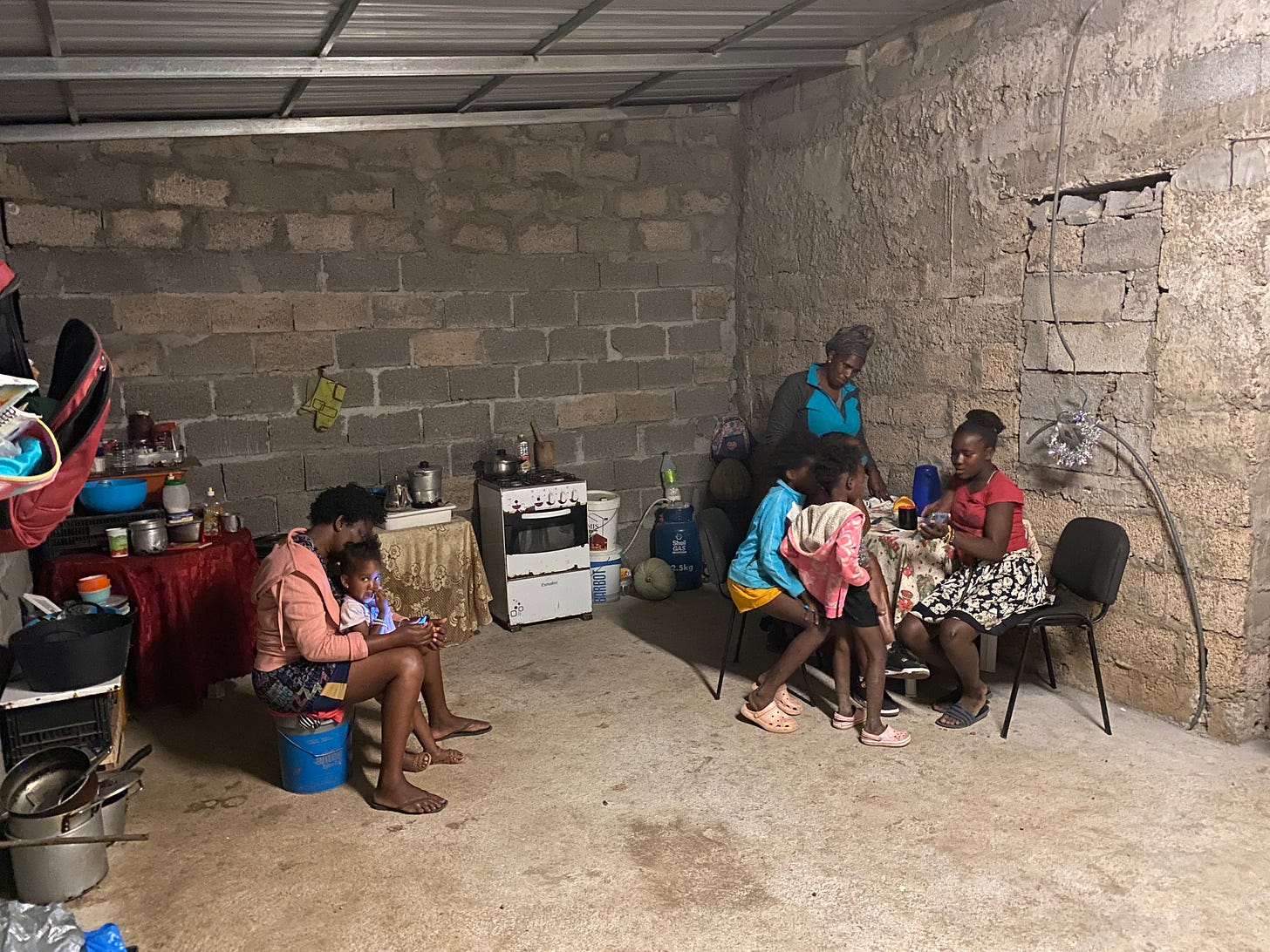
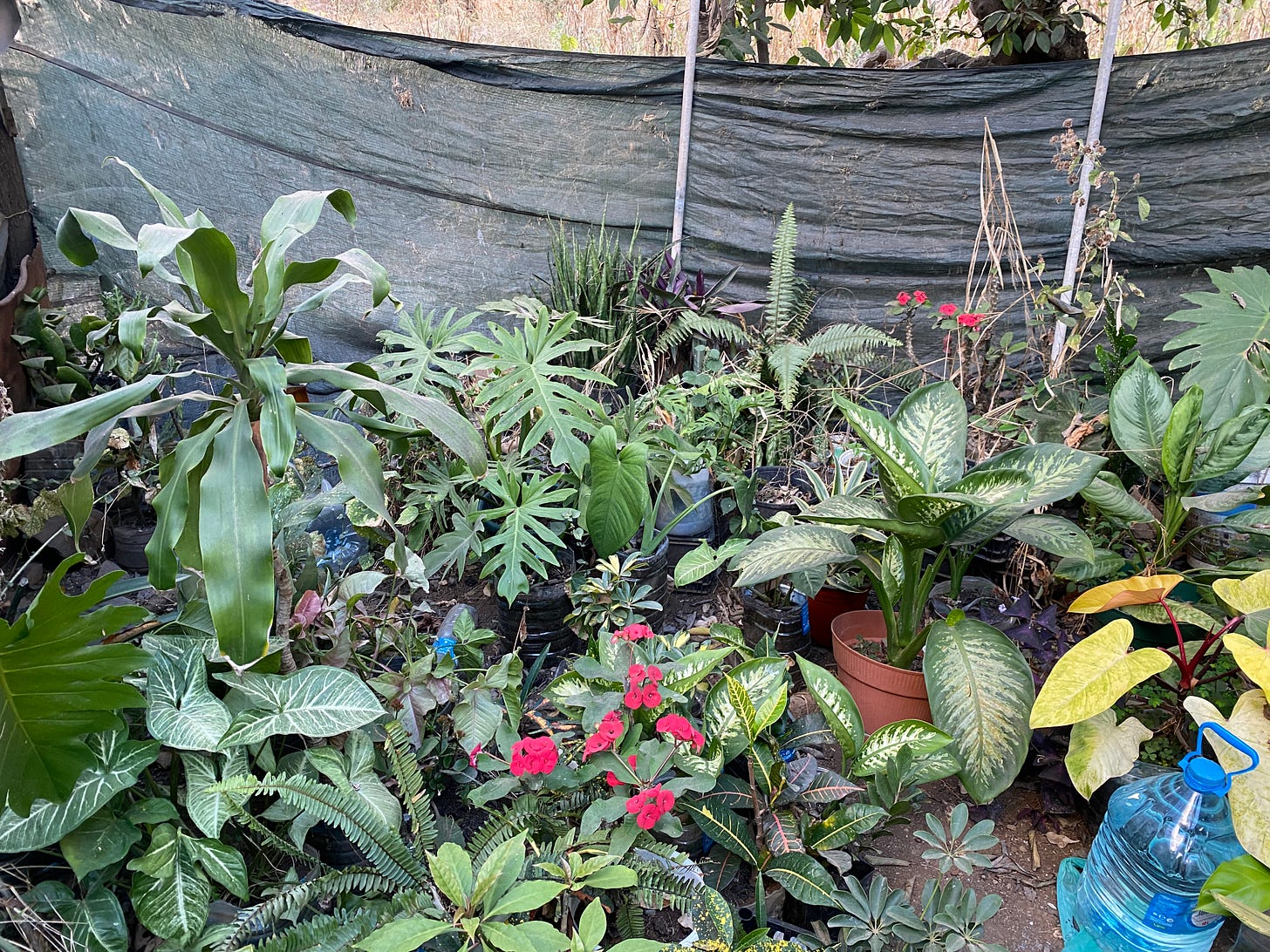
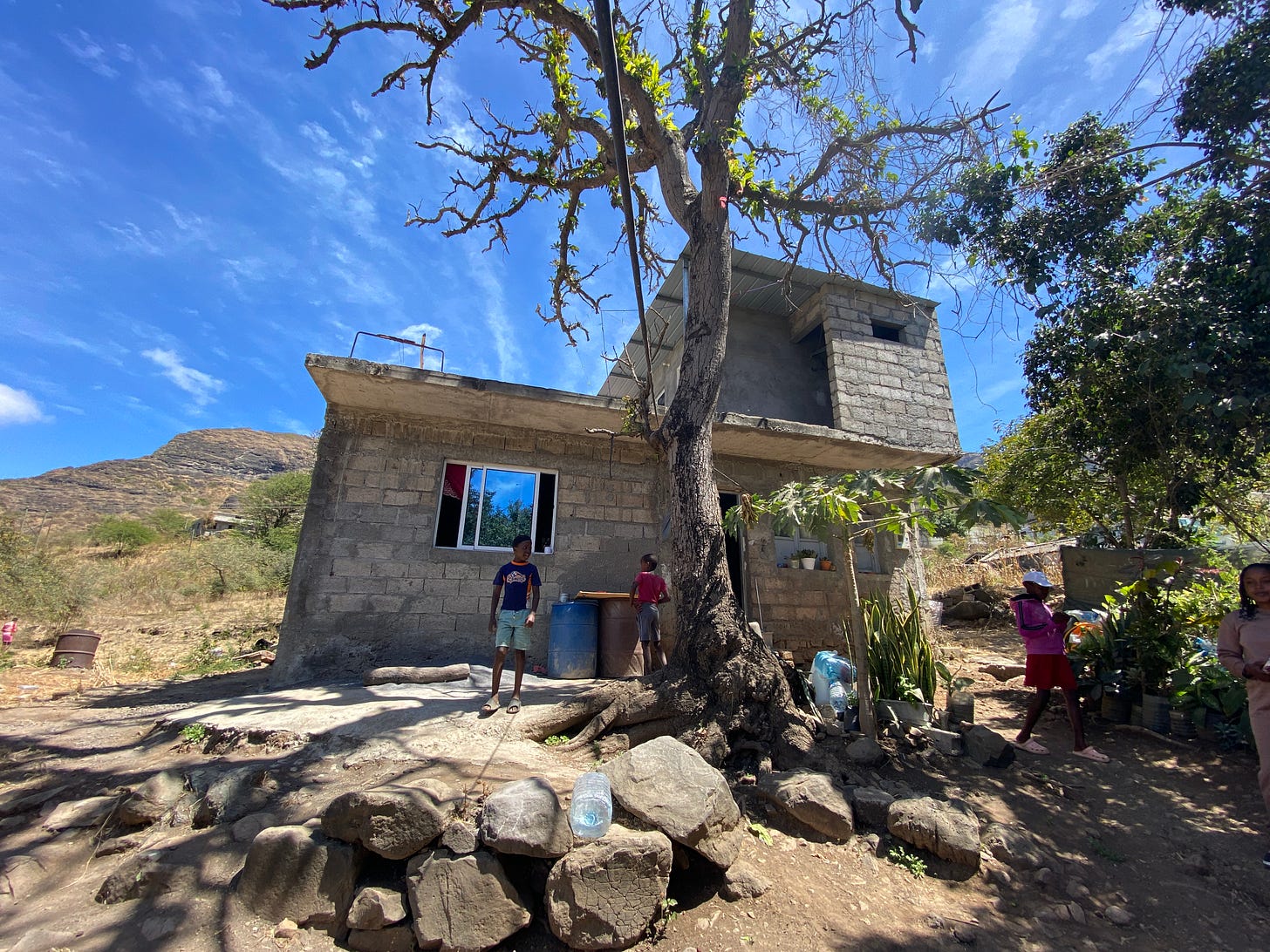
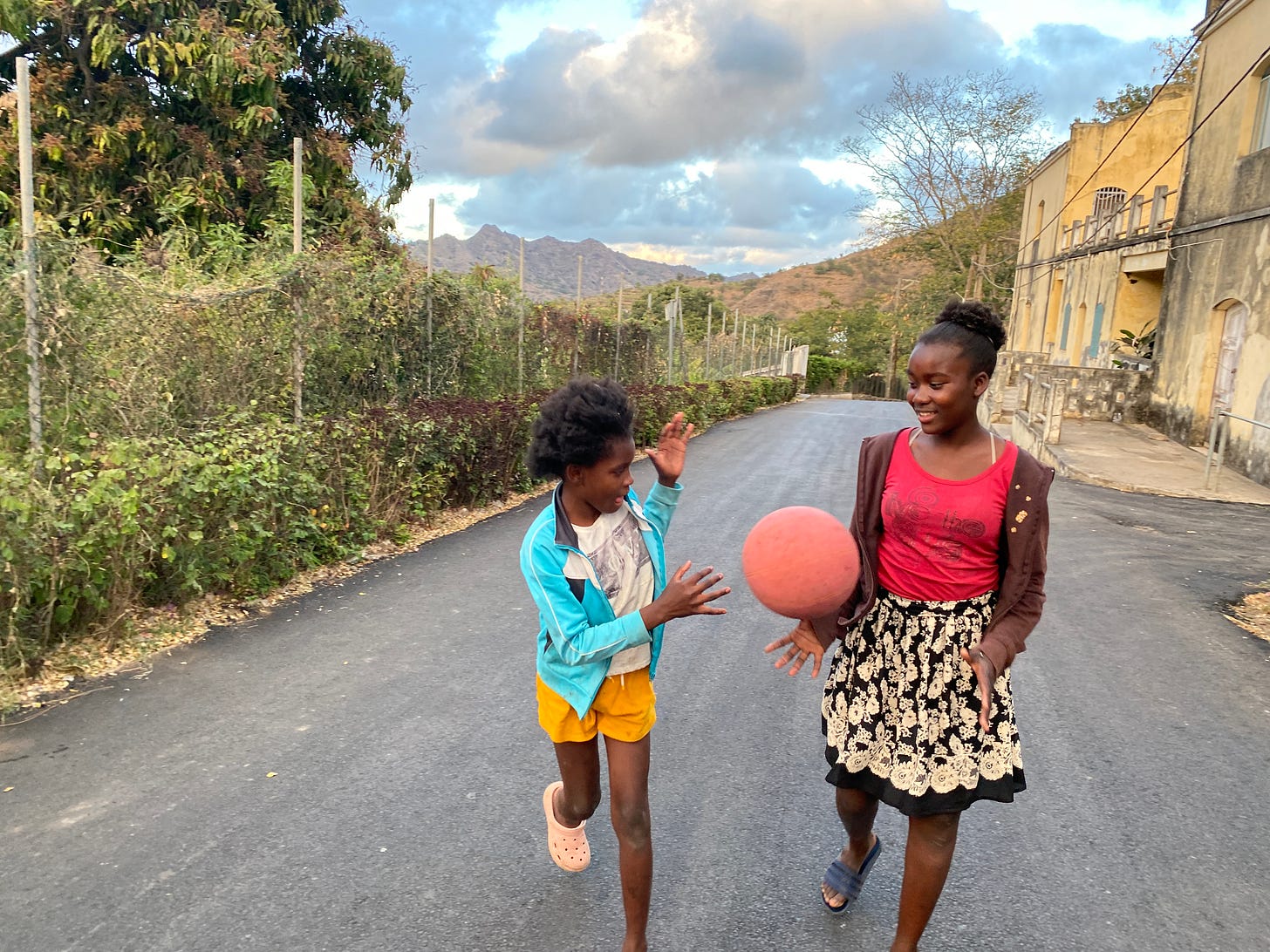
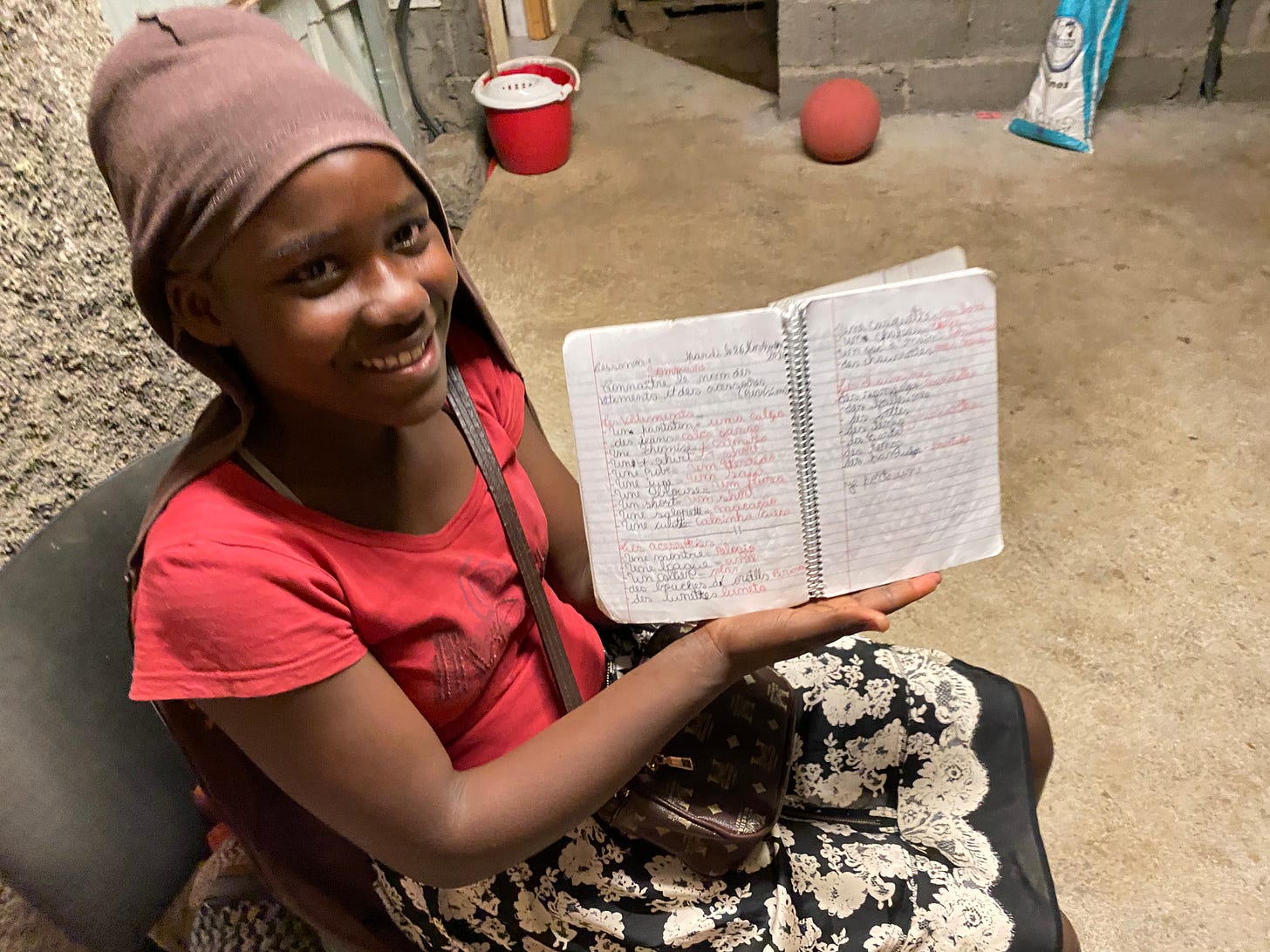
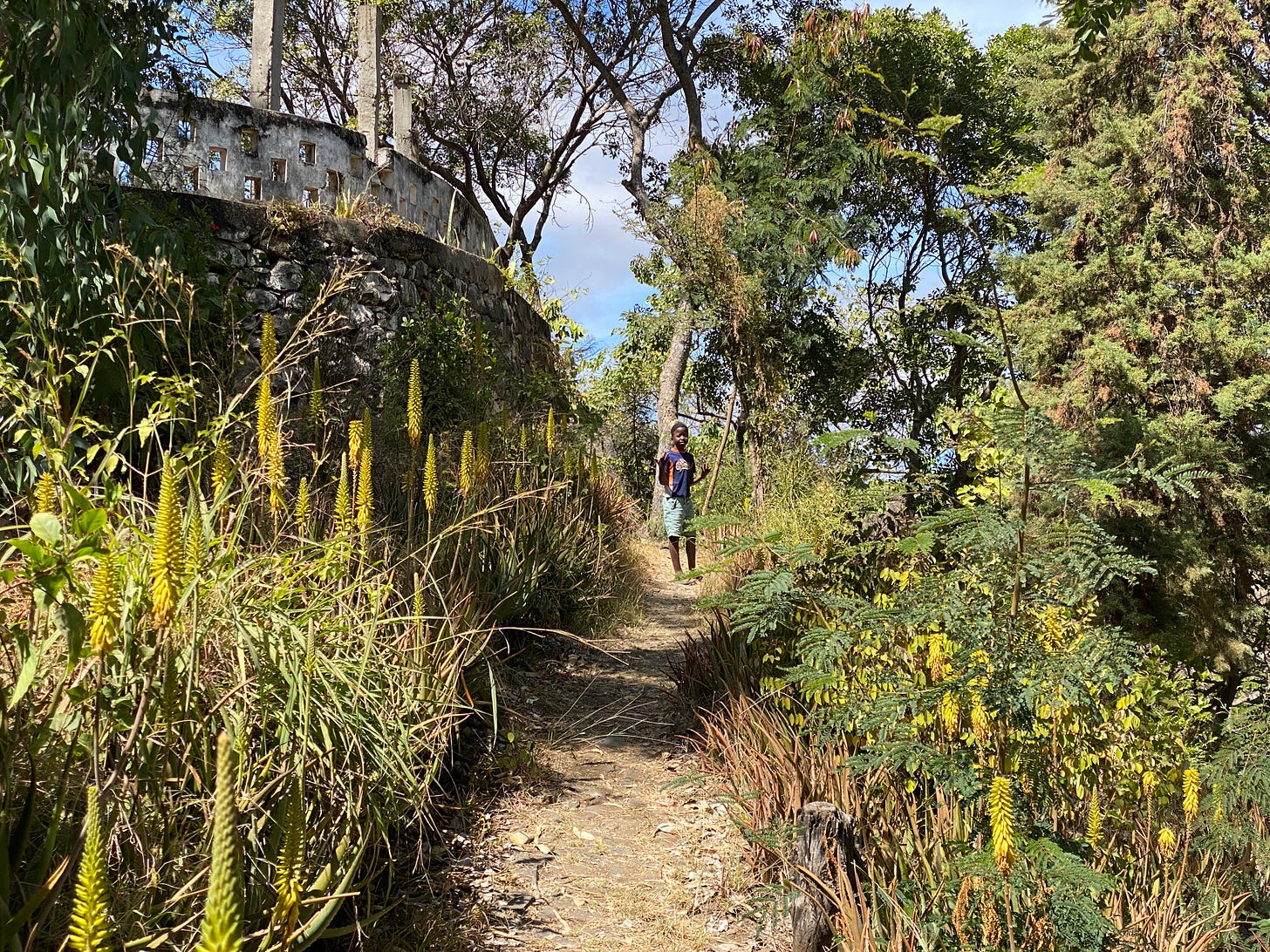
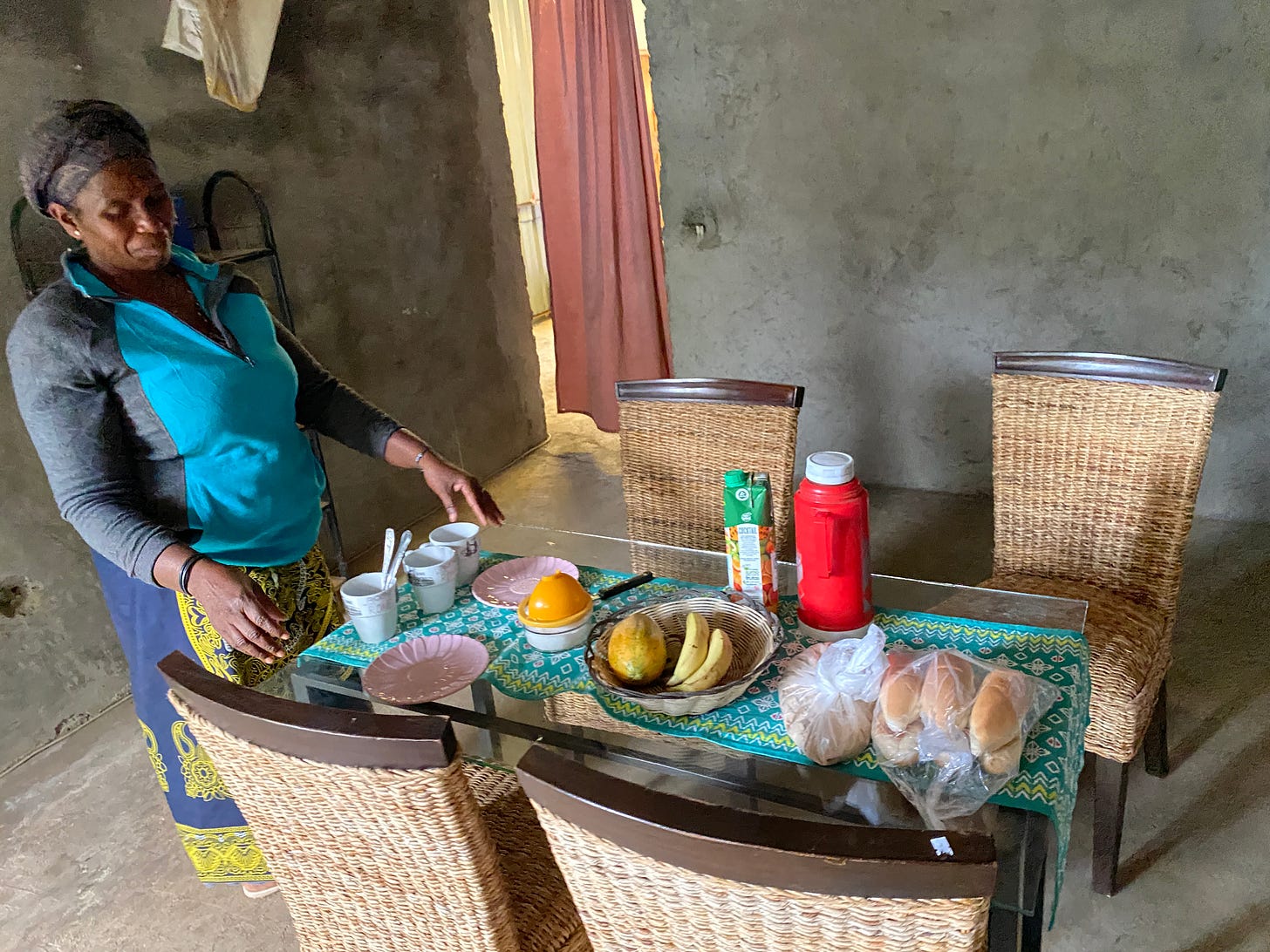
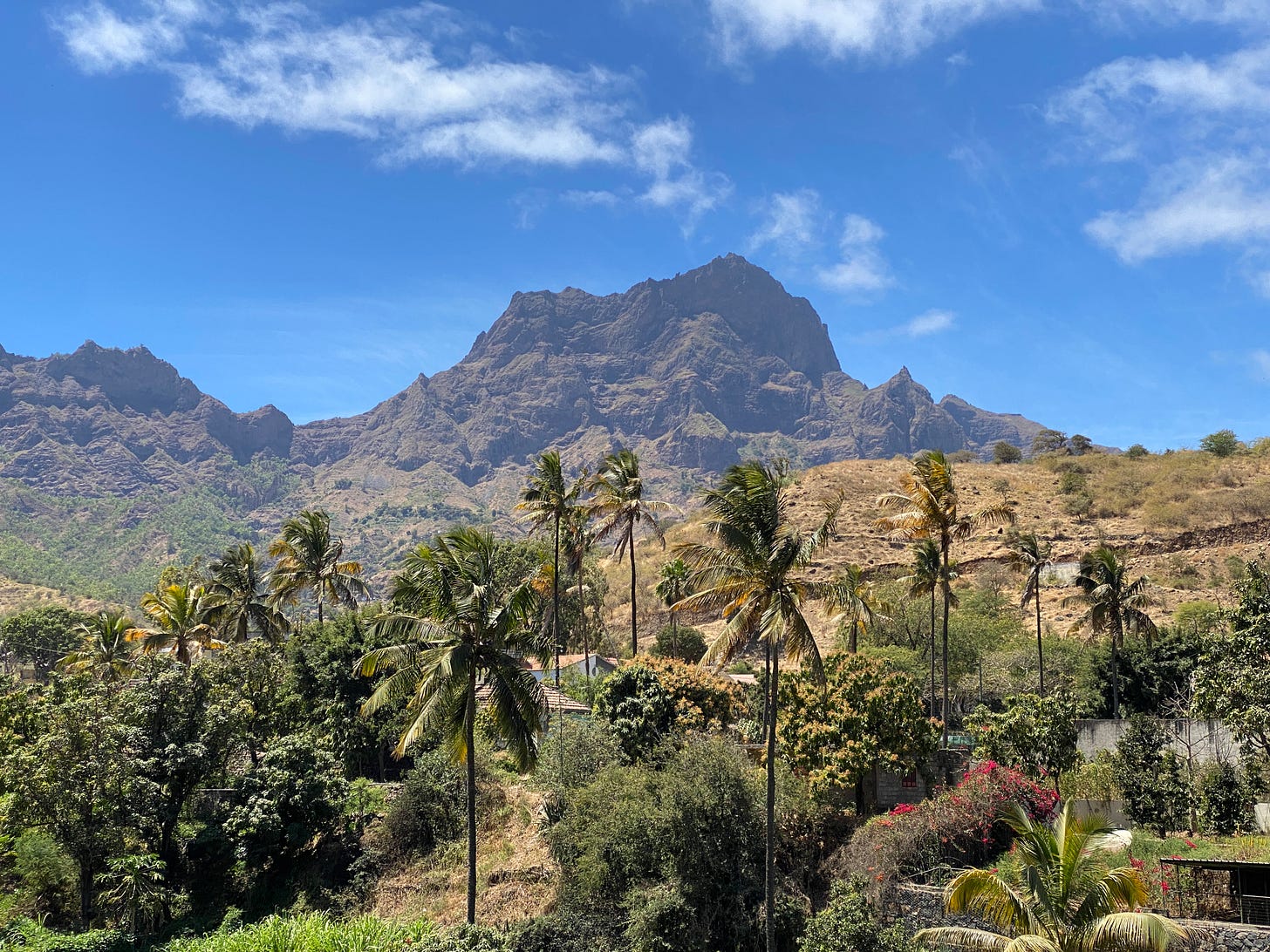
Nice story. In the early 80s, I frequented a restaurant in Dakar run by a lovely Cap Verdian woman. She served these 2 liter bottles of Vinho Verde, which I came to love. Her deal was a prix fixe for 1500 CFA, all you could eat. She just kept coming out with new platters until you said you couldn't eat any more - a plate of fried eggs, a platter of langoustine, a rice dish, and so on. On her wall was a picture of John F. Kennedy, the first Catholic American president. It made me realize how significant he was in projecting U.S. soft power, merely because of that fact.
One of your best pieces for me, GREAT stuff, keep them coming! Wish I was as trustful as you my friend ^^